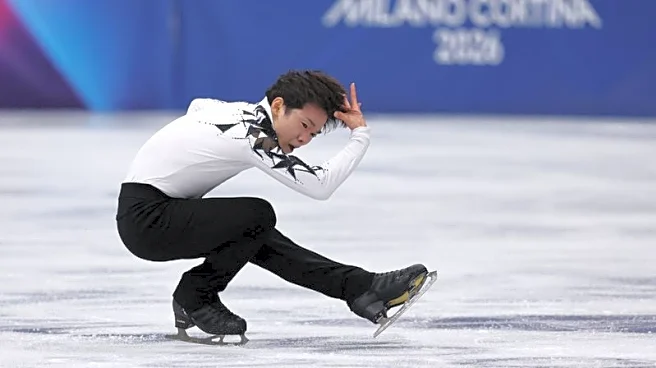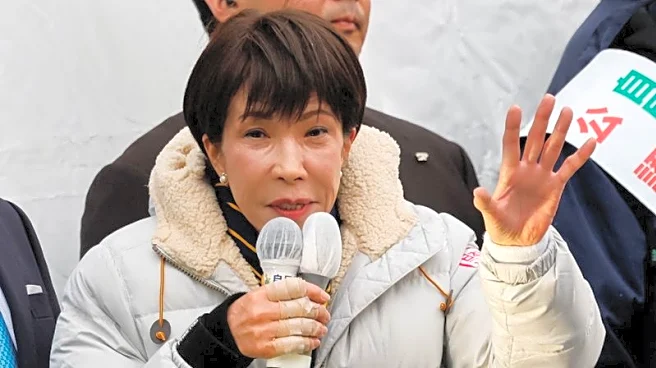What's Happening?
The Kurdistan Workers' Party (PKK), a militant Kurdish group, has announced the withdrawal of its fighters from Turkey to Iraq. This move is part of ongoing peace efforts with Turkey, aimed at reducing tensions and preventing further clashes. The PKK has been
involved in a long-standing insurgency against Turkey since the 1980s, resulting in tens of thousands of deaths. The decision to relocate fighters to the Medya Defense Area in Iraq was made with the approval of the group's imprisoned leader, Abdullah Ocalan. The announcement follows a symbolic ceremony where some fighters began laying down their weapons, signaling a commitment to the peace process.
Why It's Important?
The withdrawal of PKK fighters from Turkey to Iraq marks a significant step in the peace process between the Kurdish group and the Turkish government. This development could lead to a reduction in violence and instability in the region, potentially paving the way for more comprehensive peace talks. The decades-long conflict has had severe humanitarian and economic impacts on Turkey, and a successful peace effort could improve regional security and economic conditions. The move may also influence Kurdish relations with neighboring countries and impact broader geopolitical dynamics in the Middle East.
What's Next?
The relocation of PKK fighters to Iraq is expected to continue, with further steps in the peace process anticipated. The Turkish government and PKK may engage in more formal negotiations to address longstanding issues and seek a lasting resolution to the conflict. Regional stakeholders, including Iraq and other neighboring countries, may play a role in facilitating or responding to these developments. The international community will likely monitor the situation closely, considering the potential implications for regional stability and security.
Beyond the Headlines
The PKK's decision to withdraw fighters could have deeper implications for Kurdish autonomy movements across the region. It may influence other Kurdish groups seeking recognition or independence, potentially altering the political landscape in countries with significant Kurdish populations. The peace process could also raise questions about the treatment of minority groups and the role of international organizations in mediating ethnic conflicts.

















